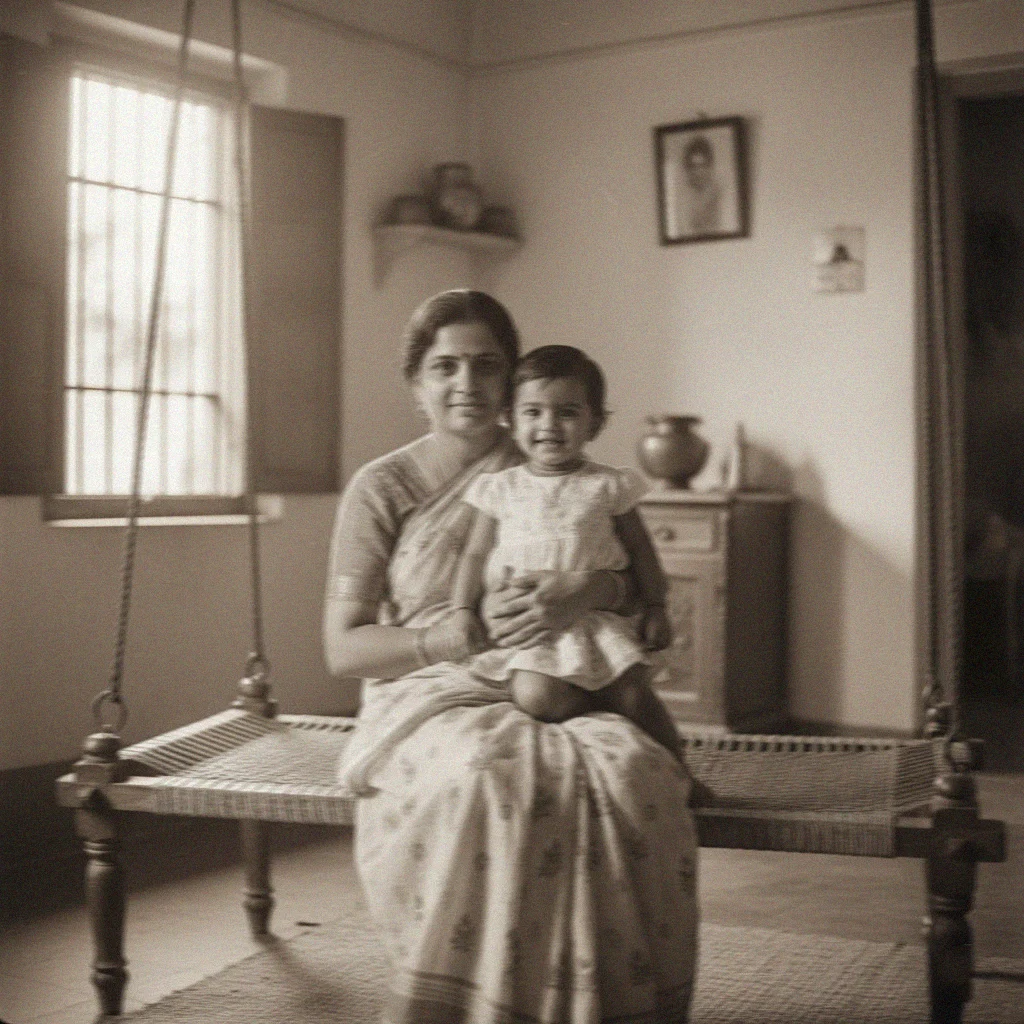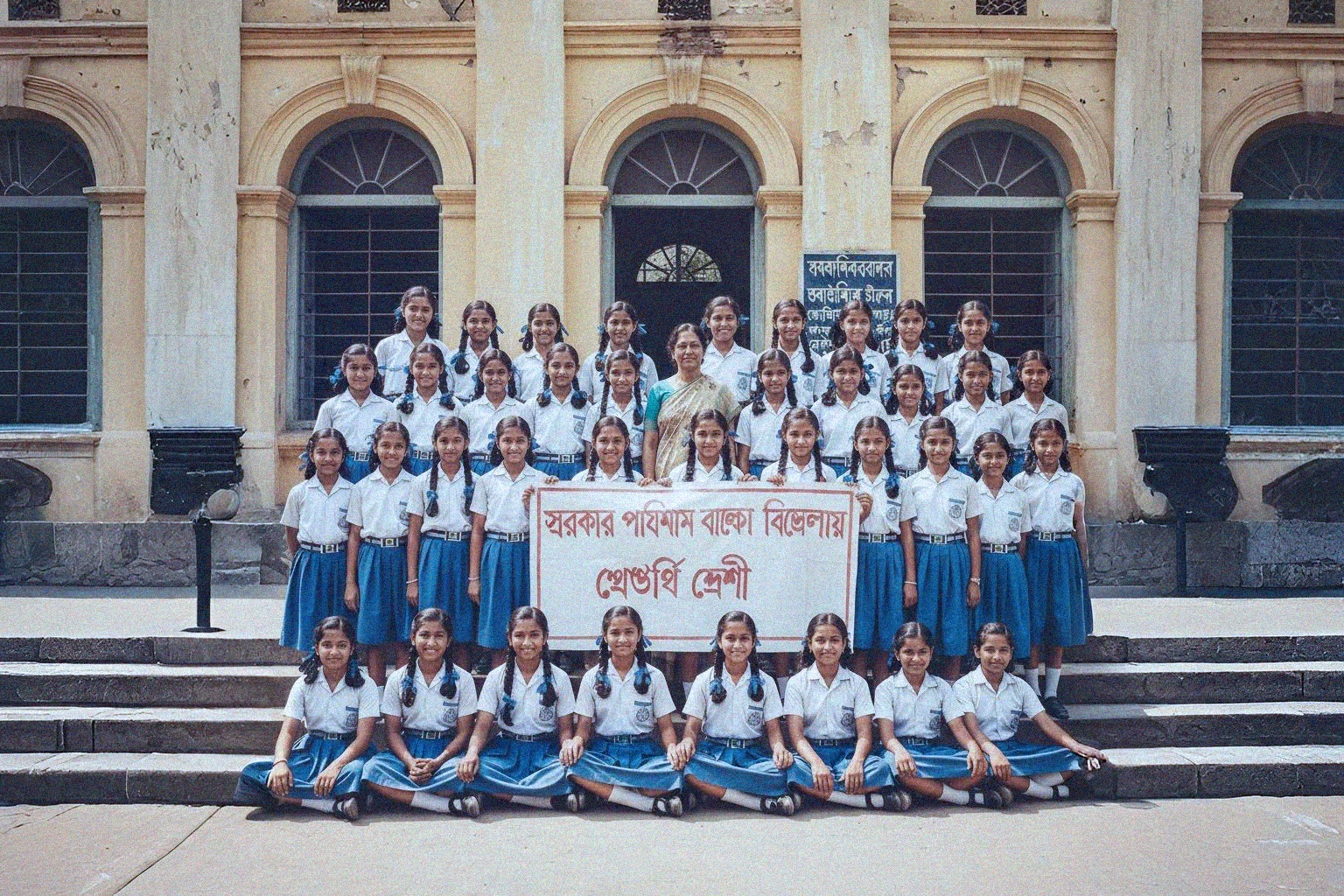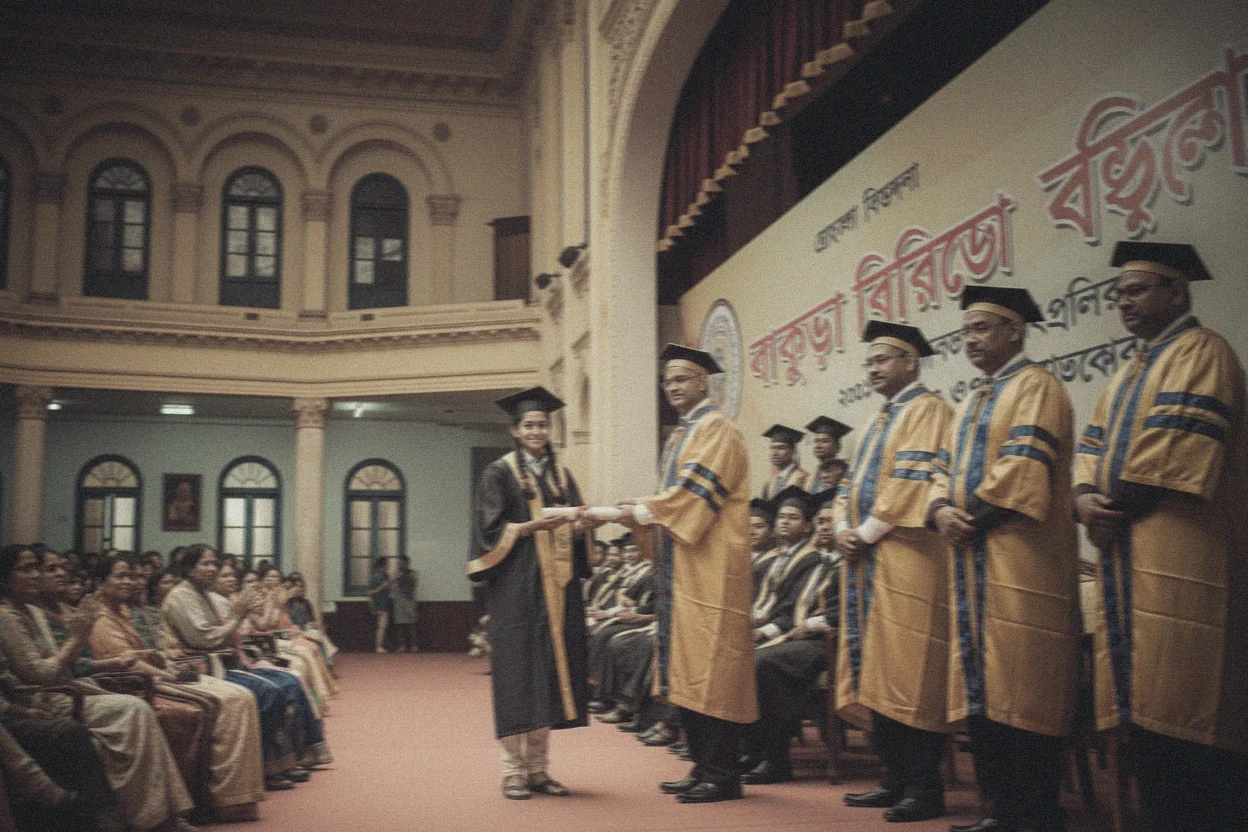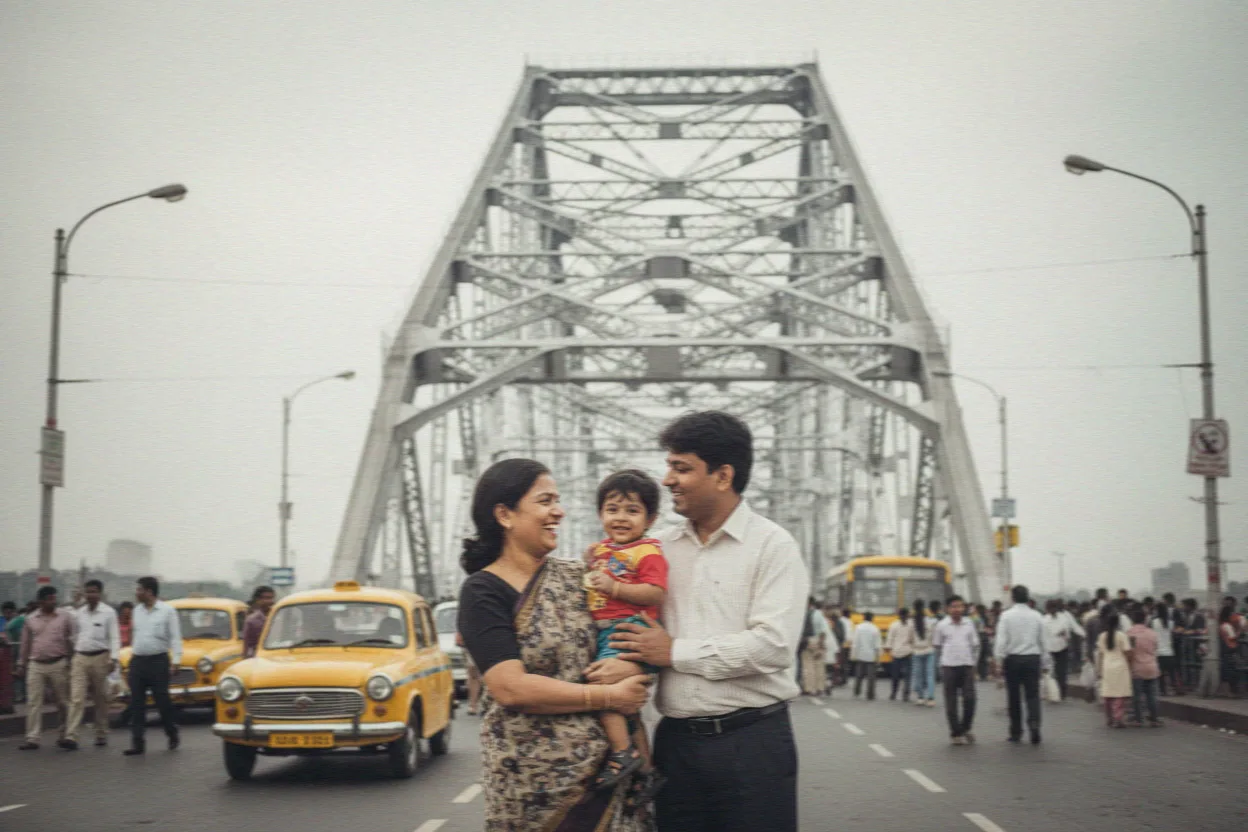Women Who Lead: Transformational Journeys Across Cultures
– Dr. Nadine Choudhury Sen
Legend’s Journey
Dr. Nadine Choudhury Sen’s journey is nothing short of legendary—a tapestry woven with threads of resilience, innovation, empathy, and the unyielding pursuit of excellence. Born into a world marked by dynamic cultural intersections and shifting societal paradigms, she emerged not merely as a participant in global discourse but as a transformative leader whose vision transcends borders and generations. Her story, now celebrated through the honorary doctorate she holds, is a testimony to the extraordinary power of dedication, intellect, and the human spirit’s boundless capacity to inspire change.
From an early age, Nadine displayed an insatiable curiosity and a rare combination of analytical rigor and creative insight. Her childhood, enriched by the cultural mosaics of her native region, instilled in her an awareness of diversity and a profound respect for the stories, struggles, and triumphs of people across different walks of life. This foundation of empathy and cultural intelligence became a defining aspect of her leadership style—a style that blends inclusivity with visionary strategic thinking. Nadine’s formative years were punctuated by experiences that would later shape her philosophy: observing her community leaders navigate social complexities, witnessing the nuances of gender dynamics, and recognizing the gaps in societal support structures that inhibited growth and innovation. These early observations cultivated a relentless drive to enact change—an ambition that she would carry throughout her professional and personal endeavors.
Her academic journey reflected the same commitment to excellence and exploration. Nadine pursued her studies with remarkable focus, often bridging disciplines to gain a holistic understanding of human development, organizational behavior, and cross-cultural leadership. Her work consistently demonstrated a rare ability to synthesize theory with practice, making her insights not only intellectually profound but practically applicable in diverse contexts. She became known for her capacity to dissect complex problems, identify actionable solutions, and inspire those around her to achieve collective goals. It was during these formative academic and professional experiences that Nadine’s dedication to women’s leadership and empowerment became clearly defined—a commitment that would eventually propel her onto the global stage.
Dr. Nadine Choudhury Sen’s professional trajectory is marked by a series of pioneering accomplishments that reveal both her adaptability and her strategic foresight. She has served in leadership roles across multiple continents, spearheading initiatives that have transformed organizational cultures, uplifted marginalized communities, and cultivated a new generation of women leaders. Her work spans sectors—corporate, social, educational, and governmental—demonstrating a rare versatility and an unwavering focus on impact. Nadine’s contributions are characterized not merely by the positions she has held but by the enduring influence of her initiatives: programs that continue to thrive long after their inception, institutions that embrace inclusivity as a core value, and networks that empower women to lead confidently in complex, globalized environments.
At the heart of Nadine Choudhury Sen’s journey lies a commitment to transformational leadership that is both deeply personal and expansively global. Her philosophy is grounded in the belief that sustainable change requires an integration of vision, empathy, strategic thinking, and ethical responsibility. Whether navigating complex corporate landscapes, designing social empowerment programs, or advising policy frameworks, she has consistently demonstrated the capacity to identify leverage points for systemic change and to mobilize resources, people, and ideas toward meaningful outcomes. Her approach balances pragmatism with idealism, reflecting a nuanced understanding that leadership is both an art and a science, requiring the courage to innovate while honoring the values that underpin enduring success.
Phase 1: Cultivating Autonomy and Authority
 The first phase of Dr. Nadine Choudhury Sen’s journey is characterized by a profound commitment to cultivating autonomy and establishing authority in environments often resistant to female leadership. This stage of her life represents a deliberate and strategic process of self-definition, skill acquisition, and the assertion of professional and personal agency—a foundation upon which all subsequent phases of her transformative journey would be built.
The first phase of Dr. Nadine Choudhury Sen’s journey is characterized by a profound commitment to cultivating autonomy and establishing authority in environments often resistant to female leadership. This stage of her life represents a deliberate and strategic process of self-definition, skill acquisition, and the assertion of professional and personal agency—a foundation upon which all subsequent phases of her transformative journey would be built.
From the outset, Nadine understood that authority is not a granted status but an earned one, shaped by competence, consistency, and credibility. Her formative experiences in educational institutions, early professional engagements, and community initiatives revealed the subtle dynamics of power, influence, and gendered expectations. She navigated these dynamics with a combination of intellect, strategic insight, and emotional intelligence, recognizing that the path to authentic leadership required both self-mastery and the ability to inspire trust in others.
During this phase, Nadine invested heavily in developing her knowledge base and skill set. She pursued rigorous academic training, often venturing into interdisciplinary fields to expand her cognitive frameworks. By integrating insights from sociology, psychology, business strategy, and cultural studies, she cultivated a holistic understanding of human behaviour, organizational dynamics, and societal structures. This intellectual versatility became a cornerstone of her authority, allowing her to approach problems with nuance, anticipate challenges, and design solutions that were both innovative and grounded in empirical understanding.
Mentorship played a pivotal role in this phase as well. Nadine actively sought guidance from leaders she admired, while simultaneously mentoring peers and younger colleagues. This dual role reinforced her autonomy by fostering a sense of agency, accountability, and shared purpose. By mentoring others, she honed her leadership capabilities, refined her communication skills, and cultivated an inclusive approach that balanced decisiveness with empathy. This period of giving and receiving guidance not only strengthened her authority but also laid the groundwork for her enduring commitment to women’s empowerment and transformational leadership.
Ultimately, Phase 1—Cultivating Autonomy and Authority—represents the crucible in which Dr. Nadine Choudhury Sen forged the foundational elements of her leadership identity. It was a period marked by deliberate self-development, strategic engagement with external environments, and the establishment of credibility through knowledge, emotional intelligence, and demonstrable impact. The lessons learned, skills acquired, and relationships cultivated during this phase provided the essential scaffolding for the challenges, breakthroughs, and global influence that would define the subsequent stages of her extraordinary journey.
This phase underscores a universal truth in leadership: authority is not inherited, it is cultivated through intentional effort, resilience, and a commitment to excellence. Dr. Nadine Choudhury Sen’s experience serves as a compelling illustration of this principle, offering an inspiring model for women leaders across cultures who seek to claim their rightful place at the forefront of transformation and influence.
Phase 2: The Strength of Unwavering Resolve
 Phase 2 of Dr. Nadine Choudhury Sen’s journey—The Strength of Unwavering Resolve—represents a defining epoch in her life, a period in which determination, discipline, and an unyielding commitment to purpose converged to shape her trajectory as a global leader. Whereas Phase 1 focused on cultivating autonomy and establishing authority, this phase delves into the deeper, more formidable dimension of leadership: resilience in the face of adversity, the courage to persevere when confronted by structural and societal challenges, and the capacity to transform personal and professional obstacles into catalysts for growth.
Phase 2 of Dr. Nadine Choudhury Sen’s journey—The Strength of Unwavering Resolve—represents a defining epoch in her life, a period in which determination, discipline, and an unyielding commitment to purpose converged to shape her trajectory as a global leader. Whereas Phase 1 focused on cultivating autonomy and establishing authority, this phase delves into the deeper, more formidable dimension of leadership: resilience in the face of adversity, the courage to persevere when confronted by structural and societal challenges, and the capacity to transform personal and professional obstacles into catalysts for growth.
From the earliest stages of this phase, Nadine confronted the realities that accompany pioneering leadership. As she expanded her influence across organizations, communities, and international networks, she encountered systemic biases, cultural resistance, and skepticism regarding her abilities. These challenges were not superficial; they were deeply entrenched, often subtle yet persistent, requiring both strategic insight and emotional fortitude to navigate. Rather than being deterred, Nadine approached these hurdles with a mindset that would come to define her brand of leadership: one that viewed obstacles not as deterrents but as opportunities to demonstrate competence, reinforce credibility, and exemplify perseverance.
At the heart of this phase was the recognition that unwavering resolve is cultivated internally before it can be demonstrated externally. Nadine embarked on a deliberate process of introspection, reflection, and self-assessment. She examined her values, clarified her vision, and identified the principles that would guide her decision-making and leadership style. This internal alignment allowed her to act with consistency, integrity, and confidence even when external circumstances were unpredictable or hostile. By anchoring herself in purpose, she built an unshakeable foundation that empowered her to pursue ambitious objectives without compromise.
A defining feature of this phase was Nadine’s commitment to women’s empowerment and leadership development. While her earlier work laid the groundwork for establishing authority, it was in this phase that she leveraged her position and influence to create systemic opportunities for other women. She designed mentorship programs, leadership incubators, and cross-cultural networks that provided women with access to resources, guidance, and strategic connections. Her approach was deeply intentional: she sought to dismantle structural barriers that limited participation, challenge biases that undermined credibility, and cultivate environments in which women could thrive without compromising authenticity. These initiatives reflected her belief that leadership is not solely an individual achievement but a responsibility to foster collective advancement.
Throughout this period, Nadine faced moments that tested both resolve and conviction. Whether confronting entrenched cultural norms, negotiating complex organizational politics, or navigating crises, she consistently demonstrated a capacity to maintain focus, prioritize impact, and act decisively. Her resilience was not born of stubbornness but of deliberate preparation: she invested in knowledge, built supportive networks, and developed emotional regulation strategies that allowed her to respond thoughtfully rather than react impulsively. These experiences reinforced the idea that unwavering resolve is cultivated through preparation, reflection, and a steadfast commitment to purpose.
This phase underscores a universal principle of leadership: that resolve is both a personal and relational endeavor, cultivated through deliberate action, reflective practice, and the courage to persist in the face of adversity. Dr. Nadine Choudhury Sen’s experience offers a powerful exemplar of this principle, illustrating how unwavering determination, grounded in values and reinforced by strategic engagement, can enable leaders to navigate complexity, inspire transformation, and create enduring impact.
Phase 3: Transforming Barriers into Breakthroughs
 Dr. Nadine Choudhury Sen’s remarkable journey—Transforming Barriers into Breakthroughs—marks a stage where her leadership transcended personal achievement and authority, evolving into systemic transformation and catalytic innovation. Whereas the previous phases focused on cultivating autonomy and unwavering resolve, this period illuminates her capacity to convert obstacles—whether structural, cultural, or societal—into opportunities for advancement, empowerment, and sustainable change. It is in this phase that Dr. Nadine’s visionary prowess, strategic insight, and empathetic leadership converged, creating breakthroughs that resonated across organizations, communities, and nations.
Dr. Nadine Choudhury Sen’s remarkable journey—Transforming Barriers into Breakthroughs—marks a stage where her leadership transcended personal achievement and authority, evolving into systemic transformation and catalytic innovation. Whereas the previous phases focused on cultivating autonomy and unwavering resolve, this period illuminates her capacity to convert obstacles—whether structural, cultural, or societal—into opportunities for advancement, empowerment, and sustainable change. It is in this phase that Dr. Nadine’s visionary prowess, strategic insight, and empathetic leadership converged, creating breakthroughs that resonated across organizations, communities, and nations.
Barriers, by their nature, are complex, multifaceted, and often deeply entrenched. Nadine’s approach to confronting them was neither superficial nor reactive; rather, it was analytical, strategic, and grounded in her understanding of systemic dynamics. She recognized early in her leadership journey that obstacles are not merely inconveniences but manifestations of deeper structural, cultural, or psychological limitations. By reframing barriers as indicators of areas ripe for innovation and systemic improvement, she shifted her mindset from one of opposition to one of proactive engagement. This cognitive approach became a hallmark of her leadership philosophy: every challenge contains the seeds of opportunity, and every constraint can catalyze creative solutions when approached with insight, courage, and persistence.
The outcomes of this phase were remarkable and far-reaching. Institutions became more inclusive and strategically agile, women leaders gained access to previously restricted pathways of influence, and communities benefited from integrated, sustainable development programs. Beyond measurable results, Phase 3 established a leadership paradigm: one in which barriers are not passive limitations but catalysts for creative problem-solving, innovation, and systemic transformation. Nadine’s legacy in this phase lies not only in the tangible breakthroughs she engineered but also in the mindset shift she inspired—a collective recognition that limitations are opportunities when approached with vision, courage, and strategic action.
Ultimately, Transforming Barriers into Breakthroughs represents a pivotal moment in Dr. Nadine Choudhury Sen’s journey. It is the phase in which her leadership matured into a force capable of redefining expectations, challenging norms, and catalyzing systemic change across cultures and contexts. By converting obstacles into opportunities, she demonstrated the profound principle that the most transformative leadership emerges not in times of ease but in the crucible of challenge, resistance, and complexity. This phase cements her reputation as a visionary who not only surmounts barriers herself but empowers others to do the same, leaving an enduring impact that evolves far beyond her immediate sphere of influence.
Phase 4: Impact That Endures and Evolves
 Dr. Nadine Choudhury Sen’s transformative journey—Impact That Endures and Evolves—represents the culmination of decades of intentional leadership, strategic foresight, and cross-cultural engagement. This stage is characterized not merely by singular achievements or breakthrough initiatives but by the enduring, systemic, and scalable influence of her work across organizations, communities, and global networks. In this phase, Nadine’s leadership matured into a legacy framework, wherein the structures, programs, and cultural shifts she championed continued to grow, evolve, and inspire long after their inception.
Dr. Nadine Choudhury Sen’s transformative journey—Impact That Endures and Evolves—represents the culmination of decades of intentional leadership, strategic foresight, and cross-cultural engagement. This stage is characterized not merely by singular achievements or breakthrough initiatives but by the enduring, systemic, and scalable influence of her work across organizations, communities, and global networks. In this phase, Nadine’s leadership matured into a legacy framework, wherein the structures, programs, and cultural shifts she championed continued to grow, evolve, and inspire long after their inception.
A critical dimension of this phase was institutionalizing change. Nadine recognized that individual brilliance or isolated interventions, while significant, are insufficient to generate enduring influence. She prioritized embedding principles of empowerment, inclusivity, and innovation into the very fabric of the institutions she led or advised. Through comprehensive policy frameworks, leadership development programs, and knowledge-sharing platforms, she ensured that transformative practices were codified and accessible to successive generations. For instance, mentorship programs she initiated were designed not as one-off engagements but as scalable networks capable of self-propagation, allowing participants to become mentors themselves, creating a multiplying effect of empowerment and skill development.
Her work in education and leadership development became emblematic of this phase. Nadine championed programs that transcended geographical, cultural, and socio-economic barriers, leveraging technology, collaborative platforms, and innovative pedagogical approaches to maximize reach and inclusivity. She understood that true leadership development is iterative and adaptive; it requires ongoing feedback, experiential learning, and cross-cultural exposure. By integrating these principles, she created frameworks where participants could not only acquire knowledge but internalize leadership behaviors, cultivate resilience, and develop the strategic acumen necessary to navigate complex environments. Over time, these programs became models adopted across multiple sectors and countries, demonstrating the enduring nature of her influence.
Cross-cultural engagement was another defining feature of Phase 4. Nadine recognized that in an interconnected world, impact cannot be confined by borders. She worked tirelessly to create partnerships and networks that facilitated knowledge exchange, innovation, and collaboration across cultures. Through these engagements, she fostered environments in which diverse perspectives were not only valued but leveraged to generate more effective, equitable, and sustainable solutions. These cross-cultural initiatives underscored her belief that leadership is relational and that enduring impact requires understanding, empathy, and the ability to harmonize diverse viewpoints toward a shared vision.
Ultimately, Impact That Endures and Evolves captures the essence of Dr. Nadine Choudhury Sen’s legacy: leadership that transcends individual accomplishment, permeates institutions, transforms communities, and adapts dynamically to new contexts and challenges. This phase reflects the culmination of a lifetime dedicated to empowerment, systemic transformation, and cross-cultural engagement. It is a period in which the seeds planted in earlier phases—autonomy, authority, resilience, and breakthrough thinking—flourished into structures, programs, and networks capable of sustaining influence across generations and geographies.
Phase 4 demonstrates a critical principle of visionary leadership: true impact is not ephemeral but enduring, not imposed but co-created, and not static but evolving. Dr. Nadine Choudhury Sen’s work during this phase exemplifies how strategic foresight, ethical grounding, and empathetic engagement can transform individual leadership into generational and systemic influence. Her initiatives continue to grow, adapt, and inspire, leaving a lasting imprint on the global landscape of women’s leadership, organizational innovation, and societal empowerment.
Nadine solidified her role as a global exemplar of transformative leadership—one whose influence is felt not only in measurable outcomes but in the evolving mindset, culture, and capacity of those she has empowered. Her journey in this phase is a testament to the enduring power of vision, strategy, resilience, and empathy—a blueprint for leaders who aspire not merely to succeed but to create impact that transcends time, culture, and circumstance.
Phase 5: Reflections on Fortitude and Fulfillment
 Dr. Nadine Choudhury Sen’s journey—Reflections on Fortitude and Fulfillment—represents a deeply introspective stage, where the lessons of decades of leadership, advocacy, and cross-cultural engagement are distilled into wisdom, insight, and personal meaning. Having traversed the earlier phases—cultivating autonomy, building unwavering resolve, transforming barriers into breakthroughs, and creating enduring impact—this final phase is characterized by reflection, synthesis, and the articulation of a legacy grounded in fortitude, fulfillment, and purposeful living.
Dr. Nadine Choudhury Sen’s journey—Reflections on Fortitude and Fulfillment—represents a deeply introspective stage, where the lessons of decades of leadership, advocacy, and cross-cultural engagement are distilled into wisdom, insight, and personal meaning. Having traversed the earlier phases—cultivating autonomy, building unwavering resolve, transforming barriers into breakthroughs, and creating enduring impact—this final phase is characterized by reflection, synthesis, and the articulation of a legacy grounded in fortitude, fulfillment, and purposeful living.
At the heart of this phase lies the recognition that leadership is not merely about accomplishment but about intentional, reflective growth. Nadine approached this stage with the understanding that true fulfillment arises not from accolades or positions held but from the capacity to create meaningful, positive influence in the lives of others. Her reflections reveal an acute awareness of the interconnectedness of leadership, ethical responsibility, and personal well-being. She understands that the resilience, courage, and vision demonstrated in earlier phases are not ends in themselves but instruments through which one cultivates lasting contribution and satisfaction.
Central to Phase 5 is the concept of fortitude—the sustained inner strength cultivated through experience, adversity, and deliberate practice. Nadine’s reflections underscore that fortitude is multidimensional. It encompasses emotional resilience, the capacity to navigate uncertainty, and the ability to make principled decisions in complex situations. But it also includes moral courage—the willingness to uphold ethical standards even when faced with personal or professional costs. Through her introspection, Nadine articulates that fortitude is not innate but honed over time, developed through persistent challenges, reflective practice, mentorship, and learning from both success and failure. She often emphasizes that fortitude is inseparable from humility, as true strength emerges when one acknowledges limitations, learns from others, and adapts continuously to evolving circumstances.
Another key reflection of this phase is the fulfillment derived from relational impact. Nadine’s leadership journey has consistently emphasized empowerment, mentorship, and collaboration. As she reflects, she identifies the moments of greatest satisfaction not in personal recognition but in witnessing the growth, empowerment, and success of others. Seeing mentees evolve into leaders, communities transform through capacity-building initiatives, and organizations internalize inclusive practices offers her a profound sense of purpose. Fulfillment, in her view, is measured not by singular achievements but by the cumulative ripple effect of one’s actions on individuals, organizations, and society at large.
Phase 5 also encompasses reflections on resilience in the face of systemic and cultural challenges. Nadine has encountered environments marked by resistance, entrenched norms, and structural inequities throughout her career. In reflecting on these experiences, she notes that fulfillment is intertwined with the courage to persist, innovate, and advocate in spaces where change is often slow and difficult. She underscores the importance of balancing patience with strategic action, recognizing that systemic transformation is a gradual process requiring sustained effort, coalition-building, and continuous engagement. Her reflections reveal an understanding that true leaders embrace the tension between urgency and persistence, navigating complexity with insight, ethical clarity, and foresight.
Phase 5 is also a stage of ethical and philosophical reflection. Nadine contemplates the moral dimensions of leadership—the choices, dilemmas, and responsibilities inherent in positions of influence. She acknowledges the delicate balance between ambition and service, authority and empathy, vision and inclusivity. Her reflections reveal that fulfillment is closely tied to ethical alignment: actions rooted in integrity, guided by principle, and attentive to the well-being of others create a profound sense of purpose and satisfaction. She often emphasizes that leaders who neglect ethical reflection risk temporary success at the expense of lasting impact—a lesson drawn from decades of experience across diverse contexts.
Another dimension of reflection is the acknowledgment of interconnectedness and collective achievement. Nadine consistently frames her journey not as a solitary endeavor but as a collaborative tapestry woven with the efforts, support, and inspiration of countless individuals. Colleagues, mentees, community members, and organizational partners all contributed to the breakthroughs and enduring impact she achieved. In her reflections, she underscores that fulfillment is magnified when leadership is understood as a relational practice, where success is shared, recognition is distributed, and empowerment becomes the measure of achievement. This perspective reinforces her lifelong commitment to collaborative leadership, systemic thinking, and inclusive empowerment.
Finally, Phase 5 captures a synthesis of lessons learned and wisdom imparted. Nadine distills decades of experience into actionable insights for aspiring leaders:
- Resilience is cultivated, not inherited—overcoming obstacles requires intentional effort, reflection, and adaptive learning.
- Authority is earned through credibility, competence, and empathy—leadership is both relational and strategic.
- Barriers are opportunities in disguise—transformational leaders perceive constraints as catalysts for innovation.
- Impact is enduring when it evolves—sustainable change requires systems thinking, adaptability, and mentorship.
- Fulfillment derives from service, alignment, and relational influence—true satisfaction emerges from contributing meaningfully to the growth and empowerment of others.
Through these reflections, Nadine offers not only a retrospective of her own journey but a guidepost for leaders navigating the complexities of global, cross-cultural, and transformational work. Phase 5 reveals the depth of her insight, the integrity of her values, and the profound synthesis of experience into wisdom that can inform, inspire, and guide future generations.
Ultimately, Reflections on Fortitude and Fulfillment is both a culmination and a bridge. It is the culmination of decades of intentional, courageous, and visionary leadership, capturing the essence of what it means to lead with resilience, authenticity, and ethical clarity. Simultaneously, it is a bridge to the future—providing a framework for continued learning, mentorship, and the evolution of leadership practices that extend far beyond a single individual’s lifetime. Nadine’s reflections illuminate the profound truth that leadership is not merely about what one achieves but about the lives transformed, the systems improved, and the values perpetuated through thoughtful, principled action.
This phase, rich in introspection, insight, and wisdom, cements Dr. Nadine Choudhury Sen’s position not only as a transformative leader but also as a guiding exemplar of fortitude, fulfillment, and enduring impact. Through her reflections, she offers an inspiring testament to the power of resilience, strategic vision, ethical integrity, and relational influence—a blueprint for leadership that transcends cultures, generations, and contexts, ensuring that her legacy continues to evolve, inspire, and empower long into the future.
A Personal Thank You from Dr. Nadine Choudhury Sen
As I reflect on the journey that has brought me to this moment, I am filled with a profound sense of gratitude, humility, and purpose. This recognition, in the form of an honorary doctorate, is more than a personal milestone—it is a testament to the collective energy, guidance, and inspiration of countless individuals and communities who have walked alongside me, challenged me, and believed in the possibilities of transformation.
I am deeply grateful to my mentors, whose wisdom illuminated the path during moments of uncertainty and whose belief in my potential encouraged me to embrace challenges with courage and conviction. Your guidance has been the compass that shaped my decisions, my leadership philosophy, and my understanding of the responsibilities that accompany influence. Each lesson imparted, each conversation shared, and each challenge navigated together has left an indelible mark on my journey.
To the colleagues, collaborators, and partners across the globe: thank you for your trust, your dedication, and your willingness to dream boldly alongside me. The breakthroughs we achieved were never solitary triumphs; they were the result of collaboration, shared vision, and the tireless commitment of many minds and hearts. Your support has reinforced the truth that leadership is not a solitary endeavor but a shared, co-creative process—one that grows richer and more impactful when nurtured through partnership and empathy.
I am particularly grateful to the communities, organizations, and individuals who entrusted me with opportunities to serve, empower, and innovate. Your stories, resilience, and unwavering pursuit of progress have been a constant source of inspiration. You reminded me that the measure of leadership is not in accolades or positions, but in the tangible difference we make in the lives of others, and in the enduring structures we help create for collective growth.
To the women whose paths I have had the privilege to intersect with: thank you for allowing me to witness your courage, ambition, and brilliance. Your journeys have reinforced my belief that leadership is amplified when it is shared, that empowerment is a ripple effect, and that the success of one becomes the inspiration and foundation for many. I am honored to have played a part in supporting your growth, and I remain committed to cultivating spaces where your voices, talents, and leadership can thrive without compromise.
Finally, I extend heartfelt gratitude to the institutions, academic communities, and global networks that recognize the value of vision, dedication, and service. Your acknowledgment of my work is not only humbling but also affirming of the principles I have devoted my life to: integrity, inclusivity, resilience, and the pursuit of meaningful impact. This honorary doctorate is a symbol of a shared journey—a recognition not of individual achievement alone, but of collective effort, enduring collaboration, and the transformative power of committed leadership.
As I continue on this journey, I carry forward the lessons, relationships, and experiences that have shaped every stage of my life. My commitment remains steadfast: to inspire, empower, and create pathways for others to lead boldly; to transform challenges into opportunities; and to ensure that the impact we cultivate together endures, evolves, and resonates across generations.
From the depth of my heart, thank you—to mentors, colleagues, communities, and all those whose faith, partnership, and shared vision have made this journey possible. This recognition is as much yours as it is mine, and I am inspired to continue striving, learning, and serving with humility, courage, and unwavering purpose.
— Dr. Nadine Choudhury Sen